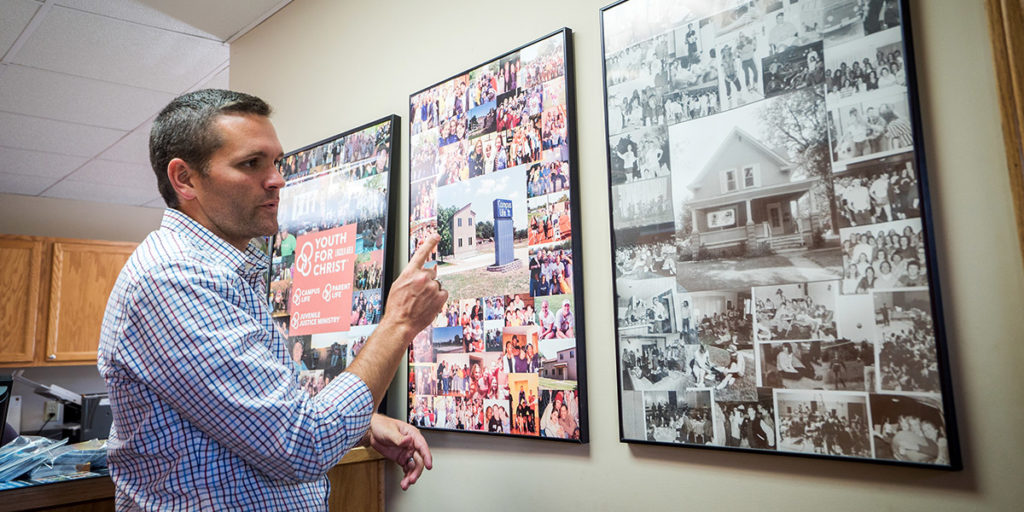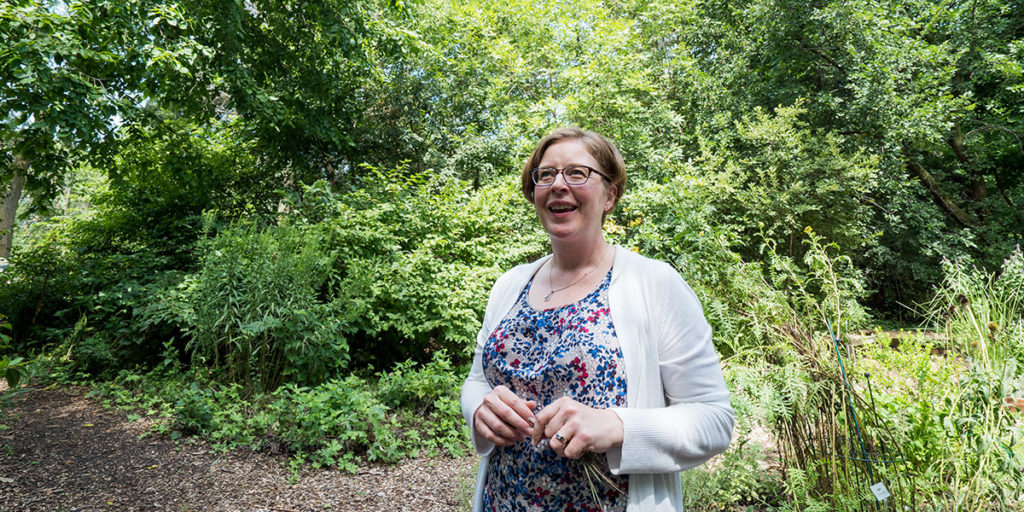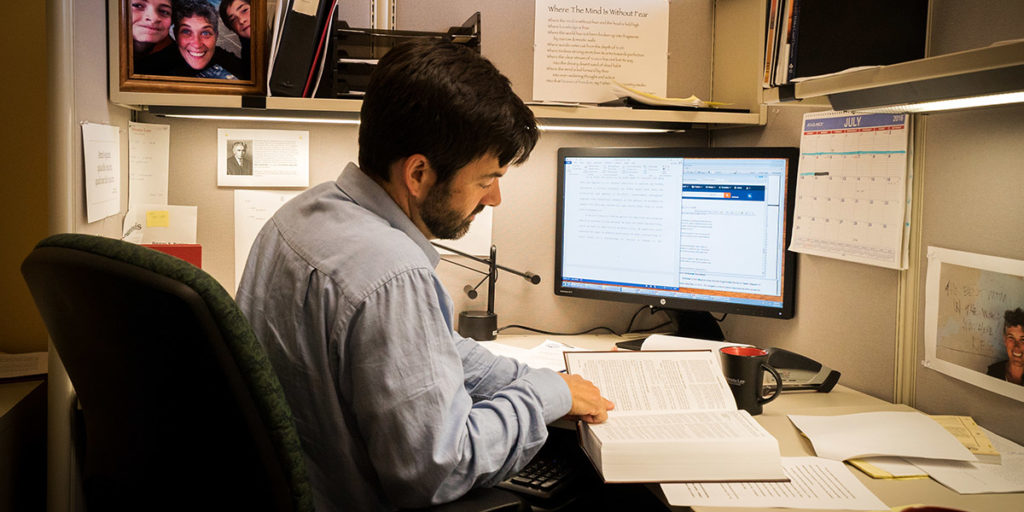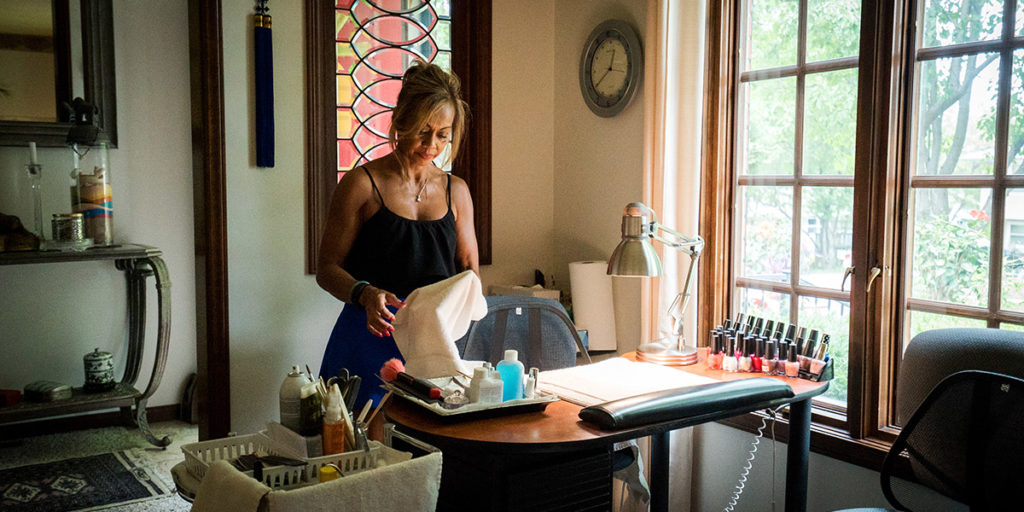Glen Parks sat down in the cafeteria at the Nebraska State Capitol and folded his hands on the table in front of him.
“Well, where should I start?” he said.
Glen’s story is complicated. It involves a lot of countries, a lot of jobs and a lot of moving. But it’s a story that’s landed him and his family back in Lincoln – a place they didn’t really imagine their story playing out.
Glen’s parents were missionaries who were based out of Nebraska, but lived internationally in places like the Philippines for much of his childhood.
Living abroad was a natural part of Glen’s life and it was a common denominator when he met his wife, Bec, during college. The couple loved exploring new cultures together and imagined their life would eventually take them abroad.
Glen said shortly after they were married he vividly remembers sitting in a coffee shop with Bec and another young couple dreaming about their futures. The four of them decided they wanted to do something big, something that involved working to end sex trafficking in countries like India and Nepal. So right then and there they made a pact to make their dreams more than just words.
It was an exciting and sobering moment, Glen said. It felt like their lives had just changed, and in many ways they had.
The two couples went their separate ways but met up once a year for the next four years to continue planning.
At this point, Glen was finishing up law school at UNL while their friends were based in India working with the International Justice Mission (IJM) doing human trafficking work.
It was a strange period of waiting, Glen said, because while they were excited about possibility of moving and working in another country, their family was starting to settle in Lincoln.
But in 2006 the right time finally came for Glen and Bec to move their family to India, and they were relieved to do the work they’d dreamed of in that coffee shop.
It was a difficult transition. They uprooted their lives, Glen left a great job, and they moved – but they knew the timing and the purpose was right for their family.
Over the next four years Glen watched as their dream turned into a reality. He headed up the legal department of their new firm and slowly built relationships that allowed their team to rescue girls from sex trafficking and prosecute brothel owners.
It was satisfying work that engaged Glen’s legal skills, critical thinking and passion, but he was also in awe of what he was seeing happen to his family.
Glen watched his children love and embrace another culture, he watched his wife encourage women who had lived through horrific situations and he watched his family grow together.
That’s the thing about traveling abroad, Glen said, family is your constant.
In 2010, Glen made the difficult decision to step down from his role at the anti-trafficking firm he’d started. He and his friend had different visions for the firm and Glen decided he’d walk away instead of ruin a friendship.
But his family didn’t leave India. They stayed rooted in their community and Glen taught law classes at a local university. Their plan was to stay in India long-term, but during an 8-week family trip to the U.S. in July 2015 Glen’s visa was suddenly cancelled and his visa application was denied. Bec and the kids returned to India to pack up without Glen and a letter arrived in December telling the family they had one week to leave the country.
So, they came back to Lincoln. Glen took a job at the Capitol working as a term-clerk for a Supreme Court Justice. It was work he was excited to take on, but the job had an expiration date – August 1, 2016.
So, once again, they were in adjustment mode.
Now what?
An uncertain future has been a consistent theme in Glen’s story. It’s not a surprise, and he’s used to doing his part and then trusting that all the pieces will come together.
But even though it’s not new territory, it’s still uncomfortable. Glen’s children are now 17, 16, 14 and 12 and they recently adopted a 11-year-old boy.
And yet Glen knows that another strong theme in his story has been sufficiency and grace. He’s seen situations turn around in ways he’s never imagined, he’s been offered jobs that are a perfect fit for his skills and he’s lived in places where his family has thrived despite immense difficulties.
Glen’s story has been about learning when to wait, go and stop. It’s been one with unplanned adventures and lots of growing, but all of it has taught Glen to be present in his current situation.
Right now, being present means leaning in to Lincoln. It’s not where he expected to be, and yet, he knows it’s where he and his family need to be.





